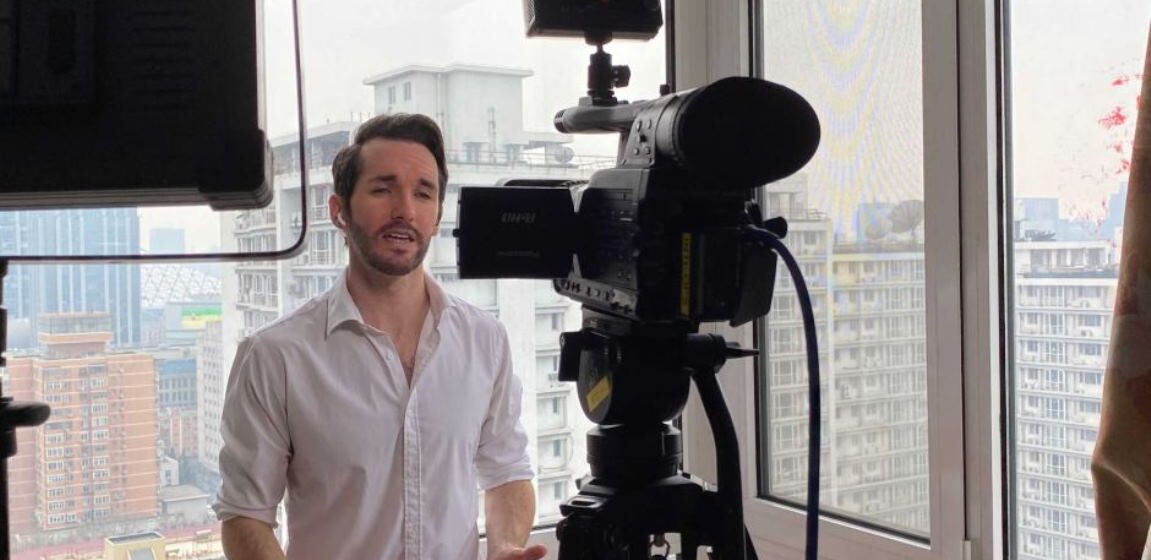Australian media companies pulled out two of their journalists from China after they were called for questioning by Beijing authorities amid heightened tensions between the two countries.
The Australian Broadcasting Corporation’s Bill Birtles and the Australian Financial Review’s Mike Smith landed safely in Sydney on Tuesday.
The Australian government had already warned ABC to remove its staff from China before they were questioned by the Chinese police.
The ABC reported that Birtles was hosting farewell drinks when the police visited his apartment and told him he was banned from leaving the country. Birtles was also told he would be called in the following day for questioning over a “national security case.” ABC did not further disclose what Birtles was questioned about.
Both journalists then sought refuge in Australian diplomatic missions in Beijing and Shanghai, respectively, while Canberra negotiated with Chinese officials to allow them to leave the country. The standoff lasted five days before the travel bans were rescinded and they were able to fly back to Sydney.
Australian foreign affairs minister Marise Payne said in a statement that the government “provided consular support to two Australian journalists in China to assist their return to Australia.”
Birtles told ABC on Tuesday that it was “very disappointing to have to leave under those circumstances.”
“It’s a relief to be back in a country with genuine rule of law,” he added. “This was a whirlwind and not a particularly good experience.”
Meanwhile, Smith said that the visits to his and Birtles’ apartments had felt “very political.”
“It was a very tense few days,” he said of his time spent within the Australian consulate in Shanghai. He added that he and Birtles were allowed to leave China on the condition that they allowed themselves to be interviewed by China’s Ministry of State Security about Cheng Lei.
“So we agreed to do that largely because we didn’t really have any option. You don’t want to be a Julian Assange and stuck in an embassy for years,” Smith added, referring to the WikiLeaks founder who lived in the Ecuadorian Embassy in London for nearly seven years to avoid extradition to Sweden.
The relationship between Australia and China has frayed in recent months after Canberra called for an investigation into the origins of the coronavirus pandemic.
Canberra already advises Australians that they may be “at risk of arbitrary detention” in China. Payne said in her statement that the travel advice, which was last updated July 7, remains unchanged.
Earlier, Payne said the Australian government was notified on August 14 that Cheng Lei, an anchor for a business show on the China Global Television Network, had been detained in Beijing.
For Australia’s media industry, the departures of Birtles and Smith are highly significant: ABC reports that there are now no more journalists employed by Australian media in mainland China. That hasn’t happened since 1972, when Canberra normalized relations with Beijing.
While there are still some Australian journalists working in China, all are employed by non-Australian media companies.
One other news outlet, The Australian, said Tuesday that it had been advised by Canberra against sending China correspondent Will Glasgow back to the country. Glasgow is currently in Australia but had been due to fly to Guangzhou last Sunday.
Foreign journalists in China have been facing scrutiny more broadly as well. Just days ago, Chinese authorities imposed new visa restrictions on foreign journalists working for American news organizations.
And earlier this year, Beijing effectively expelled about a dozen journalists from the New York Times, the Washington Post and the Wall Street Journal after the Trump administration capped the number of Chinese nationals allowed to work in the US offices of China’s state-run media.




Leave a Reply